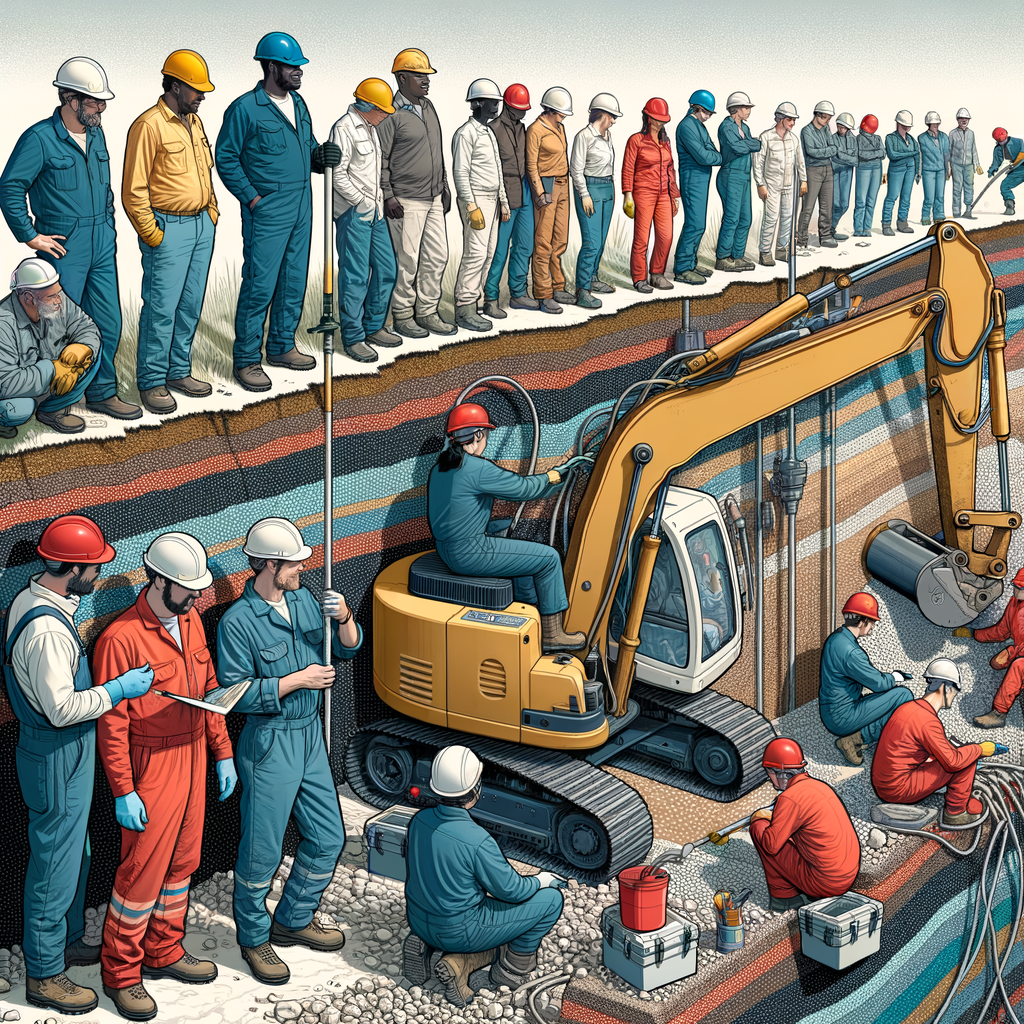In today’s rapidly evolving urban landscape, the preservation of infrastructure plays a crucial role in ensuring sustainable development and the well-being of communities. As cities like Melbourne continue to expand and modernize, the need for innovative techniques to protect existing infrastructure becomes increasingly apparent. Non-Destructive Digging (NDD) emerges as a transformative solution, offering a safe, efficient, and environmentally friendly approach to excavation.
Understanding Non-Destructive Digging
Non-Destructive Digging encompasses a range of techniques aimed at excavating without causing damage to underground utilities or structures. Unlike traditional methods such as mechanical digging or trenching, which pose significant risks of infrastructure damage, NDD relies on precision tools and technologies to carefully extract soil and debris.
NDD techniques include hydro excavation, vacuum excavation and air excavation, among others. These methods utilize pressurized water or air to break up soil and debris, which is then suctioned into a debris tank for disposal. This process minimizes the risk of accidental utility strikes and reduces the need for manual labor, making it both safer and more efficient.
Challenges in Infrastructure Preservation
The conventional approach to excavation presents several challenges, ranging from safety concerns to environmental impacts. Traditional digging methods often involve the use of heavy machinery, which can inadvertently damage underground utilities such as gas lines, water pipes, and electrical cables. Additionally, the disruption caused by excavation can disrupt traffic flow, disrupt businesses, and lead to costly repairs.
The Role of Non-Destructive Digging
Non Destructive Digging Melbourne offers a viable alternative to traditional excavation methods, mitigating many of the risks associated with infrastructure damage. By precisely targeting excavation areas and minimizing soil disturbance, NDD reduces the likelihood of utility strikes and associated downtime. This not only enhances safety for workers and the public but also helps to minimize costly repairs and service disruptions.
In Melbourne, where the preservation of historical landmarks and infrastructure is paramount, NDD plays a crucial role in maintaining the city’s heritage while accommodating modern development. By carefully excavating around existing structures and utilities, NDD ensures that vital infrastructure remains intact, preserving Melbourne’s unique character and functionality.
Applications in Melbourne
Non-Destructive Digging has found widespread application in various sectors across Melbourne. From construction and utilities to transportation and telecommunications, NDD offers a versatile solution for excavation needs. Projects such as underground cable installations, pipeline repairs, and landscaping initiatives benefit from the precision and efficiency of NDD techniques.
Benefits for Different Sectors
The benefits of Non-Destructive Digging extend beyond infrastructure preservation. In the construction industry, NDD reduces the risk of project delays and budget overruns by minimizing the likelihood of utility strikes. Similarly, utilities and telecommunications companies benefit from reduced downtime and improved service reliability, leading to greater customer satisfaction.
Regulatory Framework
In response to the growing importance of NDD in infrastructure preservation, regulatory bodies in Melbourne have implemented strict guidelines to ensure compliance and safety. Operators are required to undergo specialized training and certification to perform NDD tasks, while government initiatives promote the adoption of NDD techniques in public projects.
Cost Considerations
While the initial cost of NDD equipment and training may seem prohibitive, the long-term savings outweigh the investment. Comparative cost analyses have shown that NDD methods are often more cost-effective than traditional digging methods, especially when factoring in the potential costs of infrastructure damage and downtime.
Training and Skills Development
As the demand for NDD services continues to grow, the need for skilled operators becomes increasingly apparent. Specialized training programs and certification courses equip operators with the knowledge and skills necessary to perform NDD tasks safely and efficiently. By investing in training and skills development, Melbourne ensures a competent workforce capable of meeting the city’s excavation needs.
Technological Advancements
Advancements in technology have further enhanced the efficiency and effectiveness of Non-Destructive Digging techniques. Innovations such as GPS tracking, remote operation, and advanced imaging systems enable operators to precisely locate underground utilities and structures, reducing the risk of accidental damage and improving project outcomes.
Case Studies
Several successful NDD projects in Melbourne serve as testament to the effectiveness of this approach. From major infrastructure upgrades to minor utility repairs, NDD has consistently delivered results while minimizing disruption to communities and the environment. By studying these case studies, stakeholders can gain valuable insights into best practices and lessons learned.
Environmental Impact
In addition to its practical benefits, Non-Destructive Digging offers significant environmental advantages. By reducing soil disturbance and minimizing the use of heavy machinery, NDD helps to preserve natural habitats and ecosystems. Furthermore, the use of water-based excavation methods reduces carbon emissions and minimizes the environmental footprint of excavation projects.
Community Engagement
Public awareness and stakeholder engagement are crucial aspects of promoting the adoption of NDD techniques. By educating the community about the benefits of NDD and involving stakeholders in the decision-making process, Melbourne can ensure widespread support for infrastructure preservation efforts. Public outreach campaigns, community workshops, and stakeholder forums facilitate dialogue and foster collaboration.
Future Trends
Looking ahead, the future of Non-Destructive Digging in Melbourne appears promising. With advancements in technology and increasing regulatory support, NDD is poised to become the standard approach to excavation in the city. By embracing NDD techniques and investing in training and infrastructure, Melbourne can safeguard its heritage while paving the way for sustainable development.
Conclusion
In conclusion, Non-Destructive Digging plays a vital role in preserving infrastructure and ensuring sustainable development in Melbourne. By minimizing the risk of utility strikes, enhancing safety, and reducing environmental impact, NDD offers a safe, efficient, and environmentally friendly alternative to traditional excavation methods. As Melbourne continues to grow and evolve, the adoption of NDD techniques will be crucial in maintaining the city’s infrastructure and quality of life for future generations.

